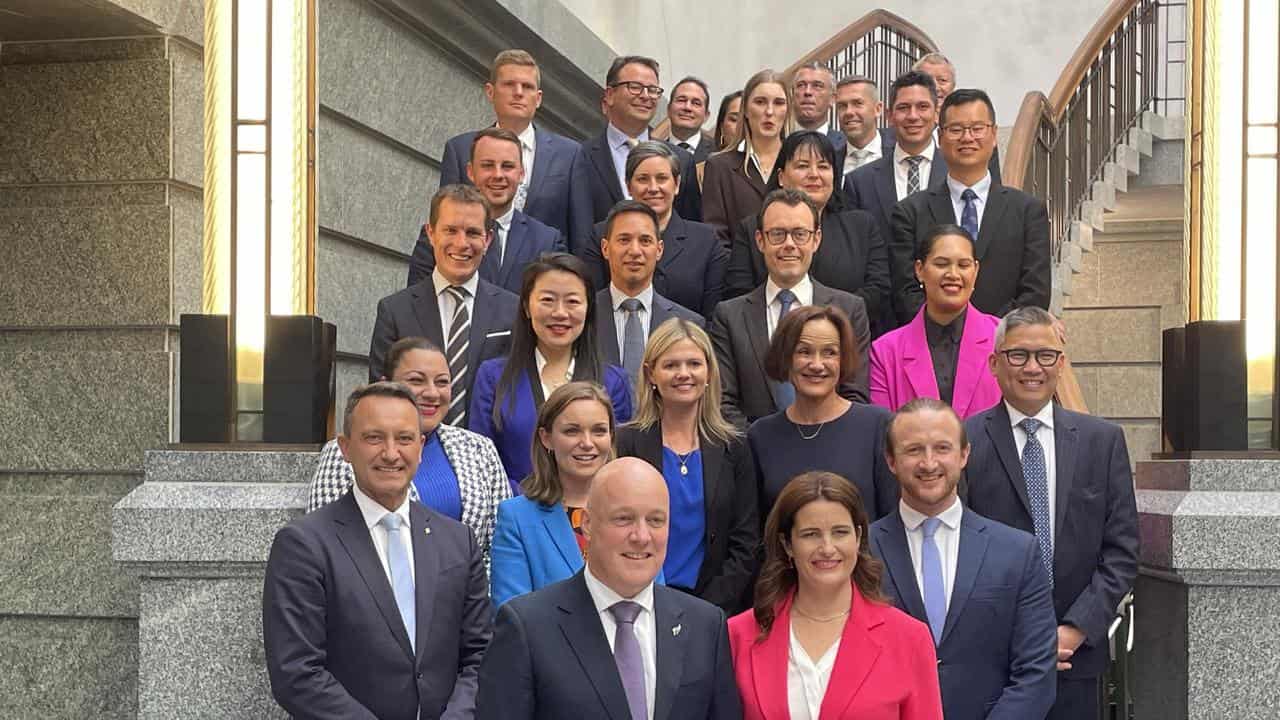
New Zealanders must wait to learn the shape of their next government, as election winners National focus on building chemistry rather than a coalition.
Chris Luxon's National party are certain to govern after turfing Labour from office with a huge swing in the October 14 poll.
However, preliminary results show Mr Luxon's National does not have a parliamentary majority with preferred coalition partner ACT, and are likely to need New Zealand First in a governing arrangement.
"There's a possibility there's going to be a third person in this marriage as Diana once said," ACT leader David Seymour told Newstalk ZB on Monday morning.
The election results are not final until an estimated 570,000 "special votes" - predominantly out-of-electorate and overseas voters - are added into the mix on November 3.
Mr Luxon says that's when he will look to finalise his government.
"I want to work respectfully with each of the political parties that are involved. We're going to form a strong stable government. That's really important," he told TVNZ.
"We ultimately have to wait until we've got clarity over the special votes."
Special votes usually favour parties of the left, and if that trend holds, NZ First's numbers will be needed.
On Sunday, National campaign chair Chris Bishop said his expectation was his party would lose a seat in the final tally.
If National or ACT could buck that trend and gain a seat or two, Mr Luxon confirmed the pair would attempt to govern with a tiny majority.
"If we can do it alone then we will," he told Newstalk ZB.
In the meantime, he said all three parties were engaged "relationship-building".
"It’s about getting the chemistry right," he said.
"Having done a lot of negotiations in my life, if you've got a good strong relationship and chemistry, then you can actually work through the transactional issues."
That relationship-building should be centred on Mr Luxon and Winston Peters, the leader of NZ First.
Mr Luxon and ACT leader Mr Seymour have met regularly in opposition, talked several times on election day, and are neighbours in Auckland's affluent eastern suburbs.
However, Mr Luxon memorably told a leaders debate he "didn't know" Mr Peters, who at 78 has been a fixture of Kiwi politics for more than four decades.
“Everyone knows him, he’s Winston Peters!” debate moderator Paddy Gower exclaimed in response.
Mr Peters is a wily negotiator, using the kingmaker position at previous elections to extract maximum value.
In 2017, he became deputy prime minister and foreign minister after siding with Jacinda Ardern's Labour.
Veteran Kiwi journalist Richard Harman reported on Monday that Mr Peters had been offered the speakership via National back channels, but he rejected it.
Mr Luxon and Mr Peters have not yet met, and Mr Peters has suggested he is in no hurry to be part of the relationship-building.
In a social media post on Monday, he thanked supporters and said "we will have to wait until the special votes" to "continue work on the formation of the next government".
The prolonged time frame will make it hard for Mr Luxon to land his ambitious targets to hit the ground running.
The party wants to release a "mini-budget" before Christmas and has released a first 100 days plan - though that timer won't start ticking down until ministers are sworn in.
Mr Luxon also has international engagements very swiftly after results are confirmed on November 3.
The Pacific Islands Forum meets in Cook Islands from November 6-10, while US President Joe Biden is hosting the APEC leaders summit in San Francisco from November 15-17.
Mr Luxon also told AAP he wanted his first international trip to be to meet Anthony Albanese, saying ties with Australia was New Zealand's "most important relationship".
In a press conference on Monday afternoon, Mr Luxon admitted he may not be able to meet those commitments.
"Look, we'll have to see, that's the reality of it," he said.
"That'll ultimately be determined by how the negotiations go."



